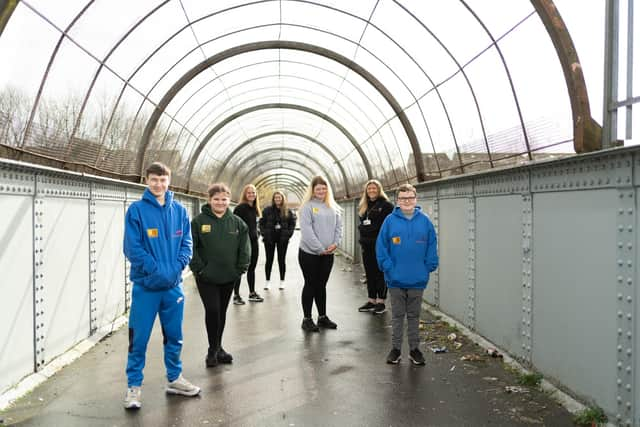New report reveals struggles facing Fife's youngsters battling poverty
and live on Freeview channel 276
Now the organisation which commissioned the report, is calling on the Scottish Government, governing bodies and local authorities to invest more heavily in access to sports facilities and physical activities.
Analysis conducted by Glasgow University for Scottish Sports Futures, - which studied existing literature and data, combined with newly conducted interview -, has shed light on the issues that have affected vulnerable young people post-pandemic.
Advertisement
Hide AdAdvertisement
Hide AdAccording to the research, half of those interviewed said that they had a mental illness by the age of 24, with some reporting having experienced mental health problems as young as age 14.


The report also found that between 500,000 and 700,000 people in Scotland are estimated to have suffered from an Adverse Childhood Experience (ACEs).
Issues such as physical, sexual or verbal abuse, physical or emotional neglect and problems affecting a family member or a parent are considered as an Adverse Childhood Experience.
Research found that individuals exposed to four or more of these experiences are said to be more likely to be at higher risk of both physical and mental health related issues.
Advertisement
Hide AdAdvertisement
Hide AdLike many local authorities, Fife’s inequalities were found to have been further exacerbated by the pandemic, with children often facing the brunt of these inequalities.
Kirkcaldy Foodbank reported an increase, to 40 per cent, of recipients being households containing children.
One study reviewed in the report found that rurality in Fife posed a challenge to young people looking to build relationships. Challenges that are said to be making it difficult for young people to build confidence and learn the skills required to address issues with peers.
Many of the issues faced by Fife’s young people are further heightened by a lack of transport. According to the report, lack of affordability or availability of both public and private transport is causing a further rise in food insecurity for those in rural areas.
Advertisement
Hide AdAdvertisement
Hide AdSafe public spaces were also identified as a barrier to physical activity. Respondents noted a lack of access to areas that were considered safe or well maintained. The report highlighted that only a third of Scotland’s young people were hitting the NHS target of 60 minutes of daily exercise.
Kirsty McNab, chief executive at Scottish Sports Futures, says the report further highlights the issues facing more deprived areas.
She said: “This is shocking evidence of the harsh reality of living in deprived communities. Sport, physical activity combined with human connection and services working together, can play a huge part in addressing and improving mental and physical health, buffer the effects of trauma and ACEs, and build skills and qualifications to bridge the attainment gap.
“Now is the time for significant investment to ensure things do not get worse.”
Advertisement
Hide AdAdvertisement
Hide AdKirsty Giles, project manager at Violence Reduction Unit Scotland, added to calls for investment in health and wellbeing.
She said: “This new report highlights the need now, more than ever, for us to invest in our young people’s health and wellbeing. Access to sport and physical activity is a proven successful conduit to that.”
